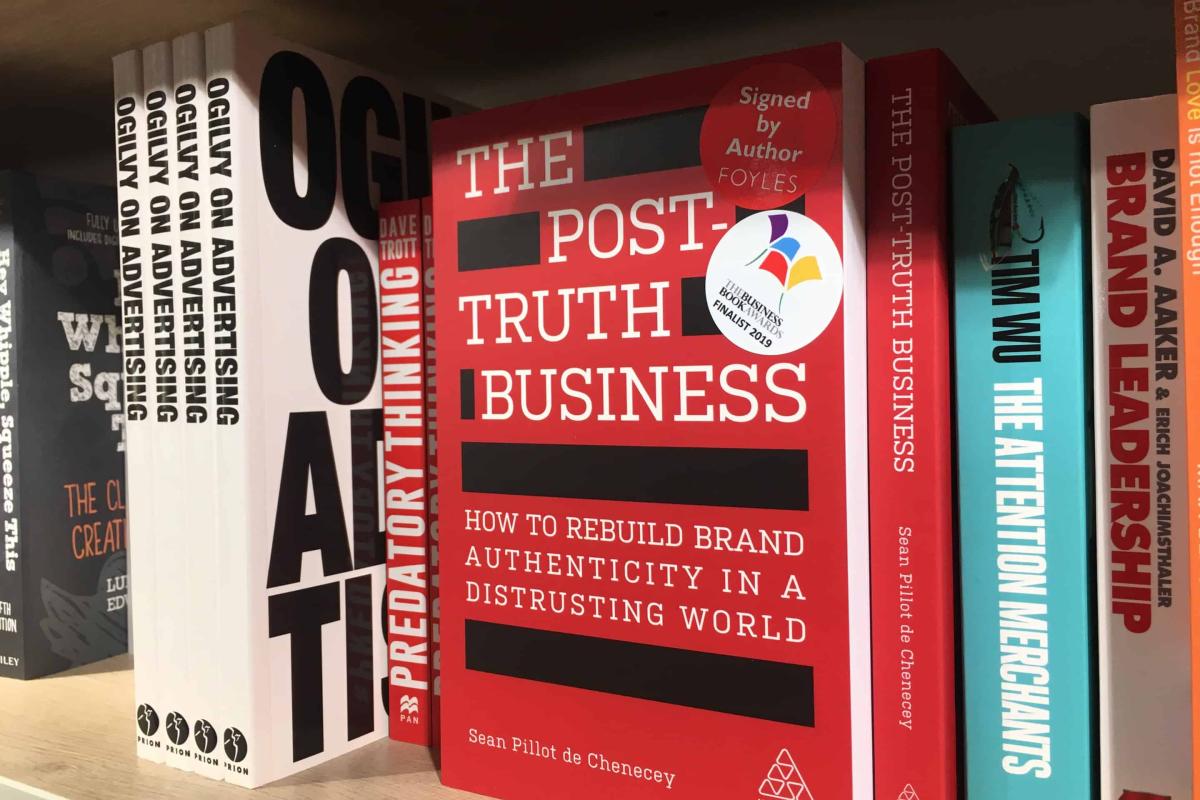The author attacks his topic on page 1: -
“A weakening of the vital trust connection between brands and consumers is causing enormous problems for businesses around the world. Linked to this something has gone very wrong with a vital element of consumer engagement: authenticity seems to be evaporating as a core brand pillar”
Phew! I am not sure what that last bit means but it is obviously very important.
This is a book where the volume is turned up to 11- things are “deeply serious”, trust has been “catastrophically devalued”, emotion is “incredibly powerful”.
There is much eye-watering hyperbole, as well as sentences that wander on for several lines in search of syntax. I blame the publishers- Kogan Page- who should have afforded the author an editor. I have written some flabby prose in my time and always benefited from the gimlet eye of Judie Lannon and Elen Lewis at Market Leader. My first drafts were not worth publishing, my third drafts sometimes got into print. I reckon a good editor would have helped the author cut this book from 263 pages to under 200.
Now I have got that bit of pedantry out of the way – what about the substance of the book?
Having stated his topic, I expected the next section to substantiate it with credible quantitative research. Instead what we get is a very well-informed discussion of issues arising from the digital revolution. The first chapter is an excellent precis of how fake news and disinformation warfare have degraded politics. Sure, this is important context but there are other books on it by the likes of Evan Davis and Robert Peston.
So, should you buy this book? You might be surprised to hear my answer is yes. And the way to read it is to turn to the contents pages, which are detailed and clear, and use them to dip into topics
Take the section: “Blockchain- the benefits are hard to exaggerate”
We know about blockchain from the fame of cryptocurrencies like Block Chain. But there are bigger implications for rebuilding brand trust because it offers unimpeachable proof provenance in the supply chain. As the author explains well- “You can see exactly what happened when and who handed over to whom via a series of interlinking digital handshakes.” Brands are using block chain to embrace transparency – like “Wholefoods who have 100% traceability for every single albacore tuna”. Expect this to be a rising trend in branding.
The author tackles important topics, covers a lot of ground and much of it addresses his central idea about rebuilding brand trust. The final pages offer a checklist of his key themes:
- Be Authentic
- Be transparent
- Respect privacy
- Demonstrate empathy
- Be Trustworthy
Which is not a bad checklist. But I don’t think it fully explains the evident trust in the first two trillion $ valued brands – Apple and Amazon- whose success is built on those old fashion virtues – brilliant products, value and service.
The Post Truth Business – how to rebuild brand authenticity in a distrusting world. Written by Sean Pillot de Chenecey - Reviewed by Julian Saunders, CEO at Port.



